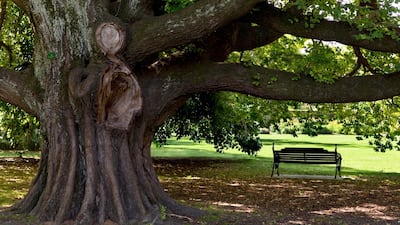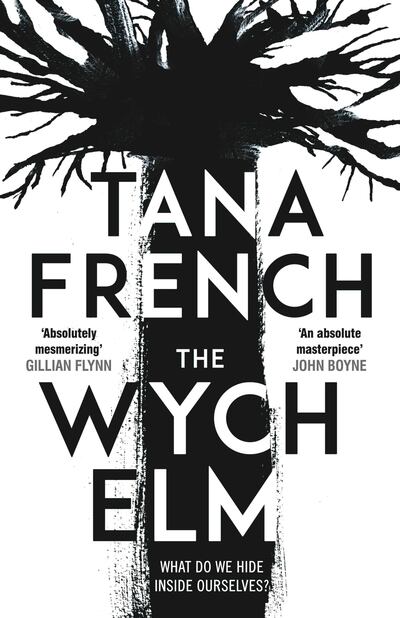Successfully combining storytelling skills usually associated with literary fiction and the page-turning propulsion of high-end crime writing, Tana French has made an impressive name for herself as the author of the acclaimed Dublin Murder Squad series. The Wych Elm is French's seventh book and her first standalone, but fans shouldn't be worried; it's every bit as compelling as the works that precede it, perhaps even more so. She's not only written a riveting murder mystery, but the story also intelligently probes the blind spots that accompany privilege.
"I've always considered myself to be, basically, a lucky person," says Toby Hennessy, the novel's 28-year-old, white, middle-class narrator. Toby's led what you might call a charmed life. He enjoyed a happy childhood, much of which was spent with his cousins, Susanna and Leon, at Ivy House on the outskirts of Dublin, the family residence and home of their beloved uncle Hugo. He has a good job – he's a publicist at one of the city's hip art galleries – and an attractive, attentive girlfriend, Melissa. All it takes is one fateful night for Toby's world to be turned upside down.
Suddenly, Toby becomes the victim of a violent home invasion and burglary that leaves him a beaten and bruised shell of the man he once was, who has to contend with the potential long-term fallout of a traumatic brain injury. Not that he's the only one in the family we need to worry about, either, as his uncle finds out he has an inoperable brain tumour not long after Toby returns home from the hospital. It makes an odd sort of sense for Toby and Melissa to move into Ivy House. It's a support system that works both ways – Toby needs somewhere to rest and recuperate, and Hugo clearly shouldn't be left alone. It's at this point, a full 150 pages into the book, that the story takes a more gruesome turn: a literal skeleton from the past turns up, lodged inside the hollow trunk of the imposing wych elm in the house's garden.
French flips her usual power dynamic by writing about police procedure from the point of view of those being investigated, rather than those doing the investigating. But telling this story from the perspective of someone who's struggling already with loss of agency and control raises the stakes exponentially.
“One blink, one glance to the side, and when you look again everything is different,” thinks Toby, as the discovery of the skull conjures a flashback to the attack. Both were moments during which his world shifted on its axis: “the trees and the garden wall and the people all looked like themselves, but they were made of some new and alien material; the world looked unchanged, and yet somehow I was standing in an entirely different place.”
Fundamentally, The Wych Elm is a story about what we see and what we don't see. The skeleton is identified, a murder is pronounced, and with it the finger of suspicion falls on the Hennessy family. As the police investigation progresses, the three cousins are forced to revisit the past, a task that proves particularly problematic for Toby. Floundering with his fragmented, unreliable memories, he slowly realises that what he's always taken for granted as a shared history is actually anything but.
The novel, above all, is a gripping psychological portrait of a man struggling to find his footing in a world he once sauntered through confidently. It's a testament to French's formidable literary skills that, despite the book being more than 500 pages long, it never once drags and neither does it feel unwieldy. That's even more impressive given that she relies heavily on large chunks of dialogue. One particularly significant conversation runs for over 50 pages, which is something few writers could sustain, let alone pull off as magnificently as French does.
Throughout The Wych Elm, the pace never lags and the tension never lets up, but, more importantly, this is a smart, thought-provoking book that offers far more than your regular, straightforward whodunnit.


